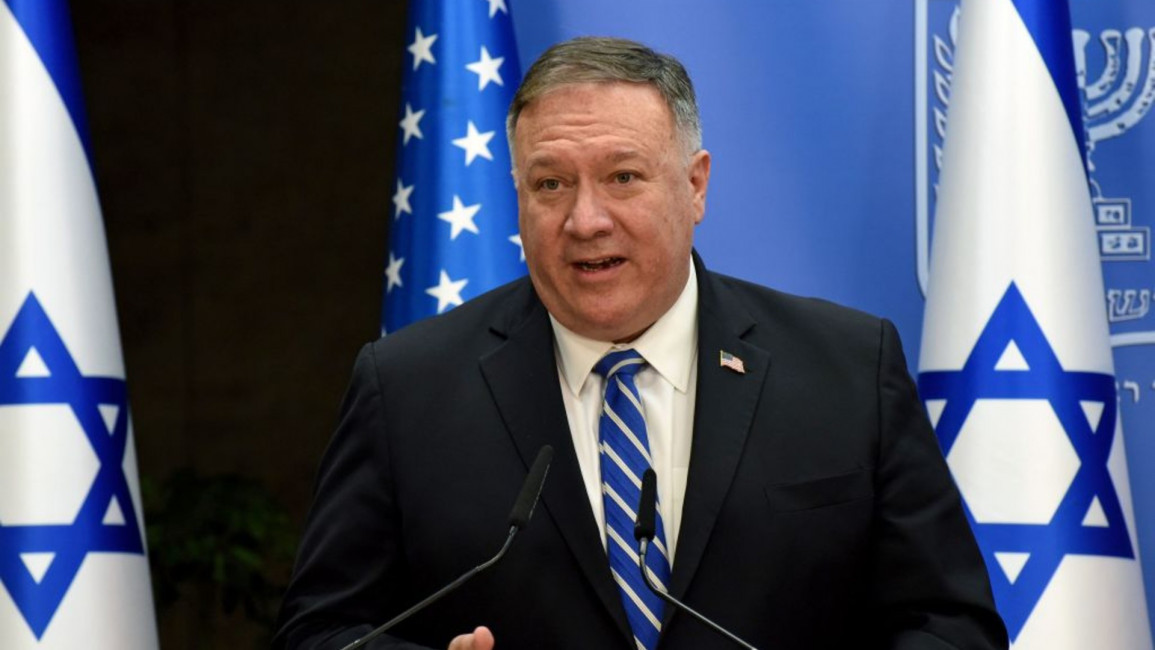
Pompeo's normalisation tour failed to replicate UAE-Israel deal in the Middle East. Here's why
His efforts have come up empty for now, as Sudan, Morocco, Oman, Kuwait, Saudi Arabia, and Bahrain said they remained committed to the 2002 Arab Peace Initiative. At least five different factors explain why this happened and what it means for the months ahead.
They relate to the heavy-handed US diplomatic style; the particularly aggressive UAE foreign policy being implemented across the region; the continuing impact of Arab public opinion on Arab leaders; the underlying Arab willingness to live peacefully with Israel when Palestine achieves its rights; and, the reality that more Arab states will normalise soon but probably more elegantly than the UAE did.
The 2002 Arab Peace Initiative (API) that Sudan, Morocco, Oman, Kuwait, Saudi Arabia, and Bahrain all adhere to offers to normalise ties with Israel after it withdraws from the lands it occupied in 1967, and allows the establishment of a Palestinian state. Yet several Arab countries that say they will not follow the UAE example - Saudi Arabia, Sudan, Oman, Bahrain, Qatar, and Morocco - nevertheless meet regularly and quietly with assorted Israeli security, technology, or commercial interests in a low-intensity, quiet proto-normalisation.
So how should we interpret this apparent contradiction in stated positions and actual policies vis-a-vis ties with Israel?
 |
Those few Arab governments that normalise ties with Israel soon will avoid the US-Israel-UAE approach |  |
Emirati, Israeli, and American leaders share a lack of concern for public opinion in their lands or others. Their focus on achieving their own national and personal goals far outweighs any other factors, including international law, political solidarity, or how their actions ravage other societies and people. We saw this in action this month, and it was ugly.
Twitter Post
|
The Emiratis under Crown Prince Mohammad bin Zayed are well into their unilateral, aggressive, and often militaristic path to assert what they see as their leading role in the region, which they feel will be bolstered by their ties with Israel. Prime Minister Benjamin Netanyahu continues to expand Israel's colonial territorial dominance and subjugation of Palestinians, while exploring new Arab terrain for more of the same – such as his having to approve sales of advanced US military items to the UAE. And American President Donald Trump unilaterally and serially upends international treaties and agreements as he applies his "America-first" policy in a way that has tended to make the Middle East more dangerous and unstable during his term.
When these three leaders combined to normalise UAE-Israel ties, many Arabs quietly feared they would be pressured next to follow suit. But those same Arabs to date have not normalised, because submitting to this American-Israeli-Emirati trio would be widely seen as a humiliating bow to the rule of the jungle, as well as obsequiously feeding urgent American and Israeli domestic electoral needs, rather than the wellbeing of their own Arab citizens.
Read more: First commercial flight between Israel and UAE lands in Abu Dhabi, marking 'normalisation deal'
The lack of new normalisation announcements, though, should not be misinterpreted. The Arabs who refused to normalise ties with Israel simply repeated their support for the API, which a majority of Arab citizens still supports because it offers a peaceful route to achieving Palestinian national rights and ending the wasteful wars with Israel.
Some new and insightful analysis by James Zogby of the Arab-American Institute clarifies Arab attitudes to Israel and Palestine by analysing the results of his recent regional public opinion poll.
He found in 2019 that the traditional centrality of Palestine to Arab citizens across the region had declined sharply in every country. Arabs who widely support the API also "said that Arab states should be doing more to advance this initiative," with significant majorities in Egypt, Jordan, Saudi Arabia, and the UAE feeling it would be desirable for some Arab states to pursue normalisation even without peace.
 |
The 2002 Arab Peace Initiative remains the only route to a just peace in the eyes of most Arab and foreign countries |  |
Many reasons explain this dual view, which included majorities in these four countries supporting the UAE's overtures to Israel while also opposing Israeli annexation plans.
A majority of Arab citizens supports a negotiated peace with Israel that leads to a Palestinian state - but it does not see the unilateral UAE move as promoting this goal.
Perhaps the key takeaway from Pompeo's visit is that Arab public opinion still counts to a meaningful extent, even among autocratic Arab governments that gave Pompeo a thumbs down. These leaders probably appreciated that they could not totally ignore their citizens' century of support of Palestinian rights. When some of them explore normalising ties with Israel they will do so by trying to extract more tangible gains for the Palestinians from Israel than the Emiratis did.
The 2002 API remains the only route to a just peace in the eyes of most Arab and foreign countries. The exception is the three in Washington, Tel Aviv, and Abu Dhabi that just showed us how not to move ahead towards a credible regional peace.
Rami G. Khouri is senior public policy fellow and Journalist-in-Residence at the American University of Beirut, and a non-resident senior fellow at the Harvard Kennedy School's Middle East Initiative.
Follow him on Twitter: @ramikhouri
Have questions or comments? Email us at editorial-english@alaraby.co.uk
Opinions expressed in this article remain those of the author and do not necessarily represent those of The New Arab, its editorial board or staff.




